Why Are People Buying iPods Again?
A year ago I fell down a rabbit hole of iPod videos, where people add modern features to decades old mp3-players and start using them again. I found them weirdly comforting, and I didn’t really know why but, clearly, I wasn’t the only one. What is it about this 20-year old piece of tech that has people coming back for more? You could call it a simple retro fad but I think there’s more to it; I don’t think you can explain “why iPods” without answering some bigger questions, like: how does our technology shape culture? How was that different in the past? And where should we try to go in the future?
I never meant to actually buy one but I went a lot further down the rabbit hole than I intended — and I definitely ran into some problems along the way. So come with me on a journey of nostalgia, physical media, algorithmic anxiety and, of course, music.
Join me as we try to answer why are people buying iPods again?
iPod modding has been a thing for years but it seems to have exploded in popularity lately, and I’ve identified four main reasons why.
1. Pause
Why did I buy an iPod given that it’s a lot more convenient, not to mention cheaper, to just listen to music on your phone? Smartphones are incredible; they’re versatile devices able to perform functions that, in the past, would require a dozen different tools. And while Apple, Google and Spotify might push you towards their music streaming subscriptions, you can still put mp3-files on your phone, so why spend money, time and attention on a secondary, less able device?
Well, listening to music on your phone might be convenient, but you know what’s even more convenient? Checking that notification, or email, or opening social media. that’s the funnel you enter as soon as you pick up your smartphone, and setting aside the fact that they’re distraction machines, your smartphone also functions as a sensor, detecting your every move, your every swipe. and that data is funnelled into a vast machinery that aims to predict and manipulate your actions, all at the expense of your time, attention and mental health.
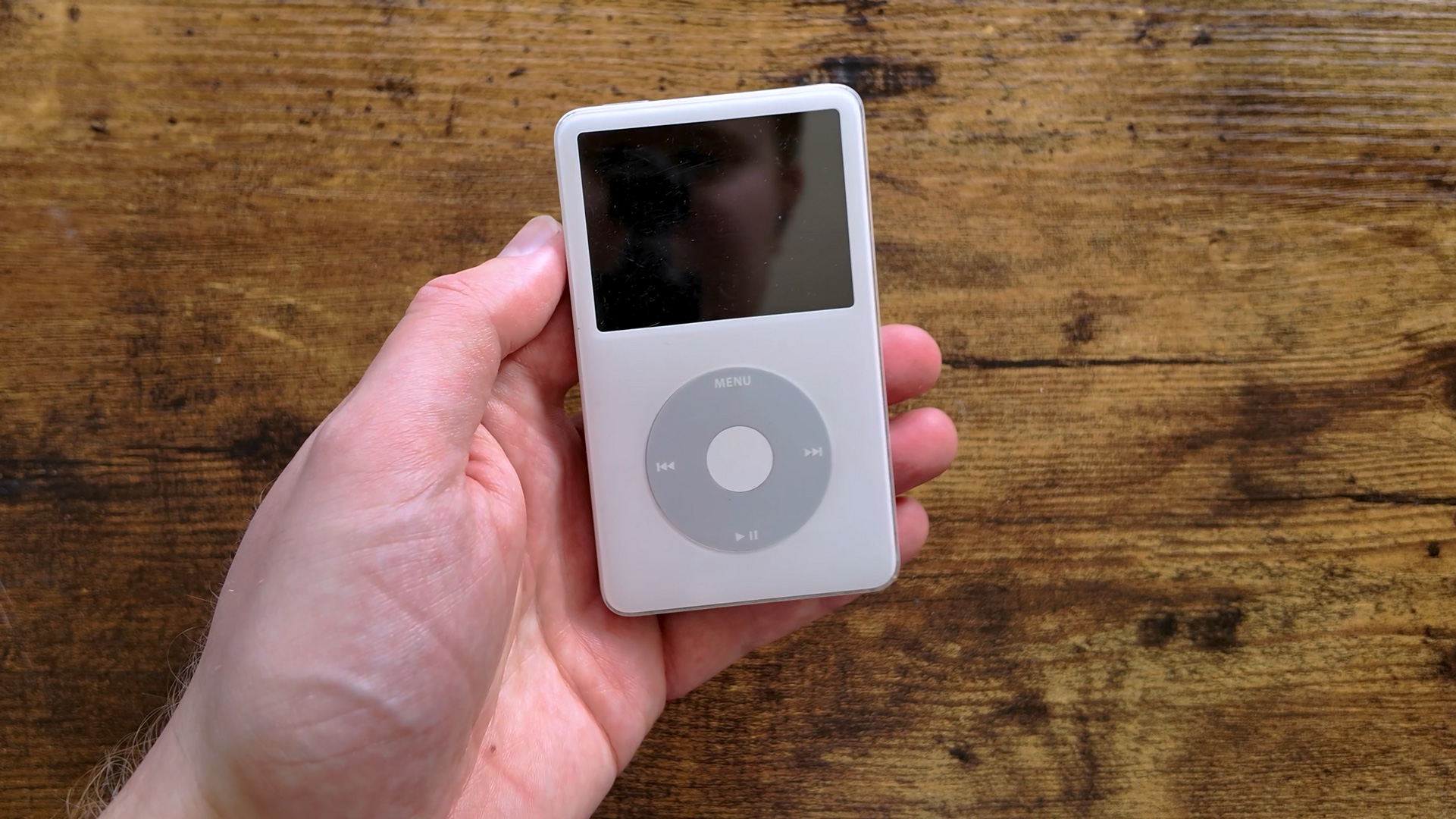
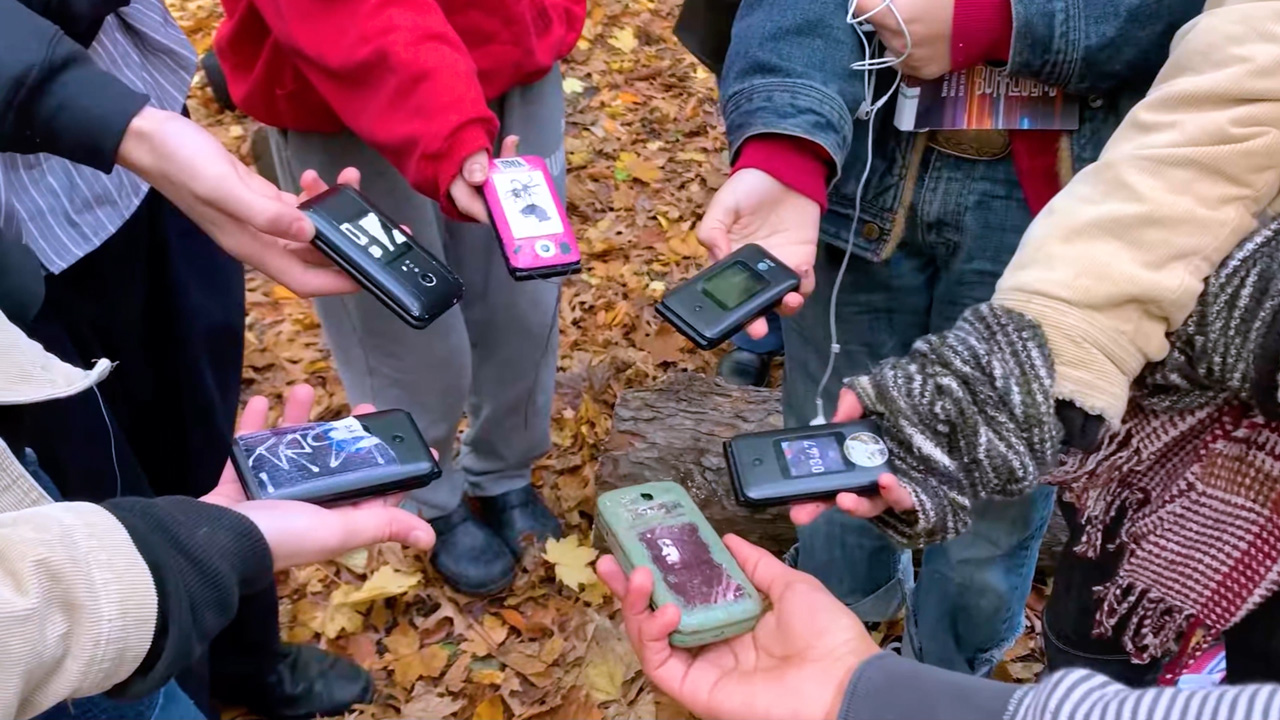
We’re all aware of this, we’re all upset about it, and yet very little is done to change it, and I’m sure you know why — big tech corporations earn unfathomable sums of money, and they only need to use a small chunk of it to legally bribe politicians into not passing meaningful legislation to regulate their behaviour.
In short, the ultimate goal of the software on your smartphone is to extract value from you.
Do you know what the ultimate goal of the software on the ipod is? To play audio files.
I think we’ve reached a tipping point where a lot of people feel the need to get away from their smartphones. This has led to an increased interest in dumbphones, “digital minimalism” and, yes, iPods. That’s the first reason that iPods are making a come-back. there’s a society-wide desire to put a pause on the relentless connectivity of every day life. And what better way to detach than to put your phone away and listen to an album from start to finish?
2. Curation
My music taste is pretty all-over the place, which I probably have my brother to thank for. When I was real young he worked for a record company and whenever he’d visit he’d bring loads of random “promotional use only” CDs that were just lying around his office. This is how I got into Gisli, Maximo Park, The Magic Numbers. And with my tastes all over the place, I never found algorithms that great at finding things I would love. Sure, they can find things I might enjoy, but things I love? that usually comes from suggestions from other humans or intentional digging. but maybe that’s not just me.
In his book Filterworld, Kyle Chayka describes this as an era of algorithmic culture. These days, most of the art and information we consume is curated by recommendation systems. and the purpose of those systems is not to find you the best or most interesting match; it’s to make money. There are obvious signs of this, like Amazon recommending its own brands over the products that they pirate and clone, but it happens in more subtle ways when it comes to culture.
When you play a song on Spotify, the platform will by default queue up more tracks that its algorithm has supposedly hand-picked for you based on your unique listening habits. But in 2024 many people noticed that no matter what song they played, Sabrina Carpenter’s Espresso would always play next. Quite a coincidence given that Spotify is in part owned by Universal Music Group! But this might not technically be a case of “payola” but rather a function of how algorithmic recommendations, just by virtue of how they work, are really boring. They’re averaging machines that box us in rather than help us discover — and the result is a cookie cutter culture. As Chayka writes, “our net behaviors are aggregated by an algorithm, then crunched and averaged and spit back out to create templates of consumption that are imposed on other people.”

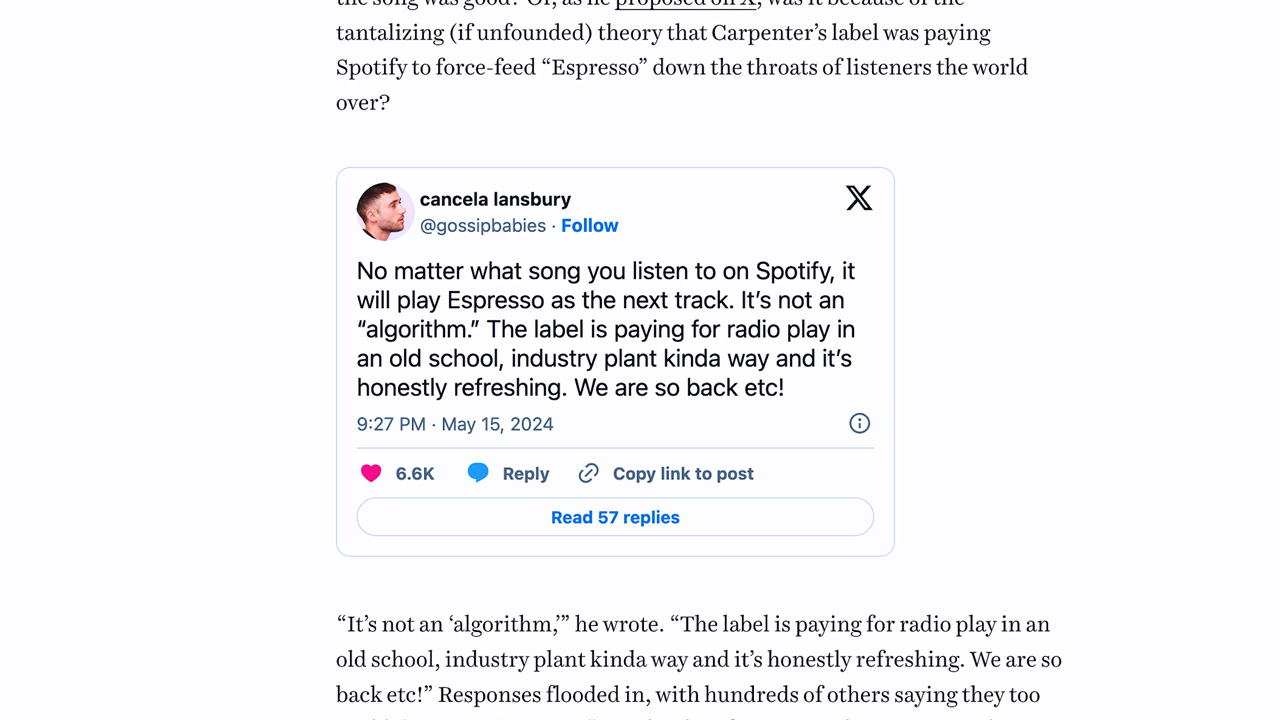
One researcher tried to get Spotify to please recommend a country song made by a woman. They set up an account that only listened to songs by women, and it still took 120 country songs by men before a single song by a woman popped up. Y’all never heard of Dolly Parton?!
The most compelling part of Filterworld is its vision for the future, as Chayka urges us to become active curators of our own cultural diets. And that’s the second reason that iPods are on the come-up. To use one, you have to find and collect the music that you like — which will probably force you to explore new media and maybe even expand your tastes. There’s a friction to it that increases the value of the music itself, which stands in contrast to how platforms like Spotify treat musicians as disposable. Where algorithms divide us, person-to-person recommendations bring us together, and iPods are part of the trend towards physical media as opposed to streaming. They open the door for a future guided not by “corporate algorithms” but by “community and curation”.
3. Modding
I have a confession to make: I’ve been down this path before, and last time, it was Game Boys. I grew up with the Game Boy and never really let go of it. In my 20s I took a notion to start modding them, and I learned a lot about it, even bought some used ones to tinker with, but I never pulled the trigger on the actual modding.
One reason was that the Analogue Pocket came onto the market, offering everything I wanted in a perfect Game Boy, all without me needing to learn how to solder. So I bought it and used it for a while, but it’s mostly been gathering dust, and I think a main reason why is that I didn’t make it. I didn’t work on it myself, I just bought my way into the perfect Game Boy. So while it’s a cool device, I don’t feel any personal connection to it.
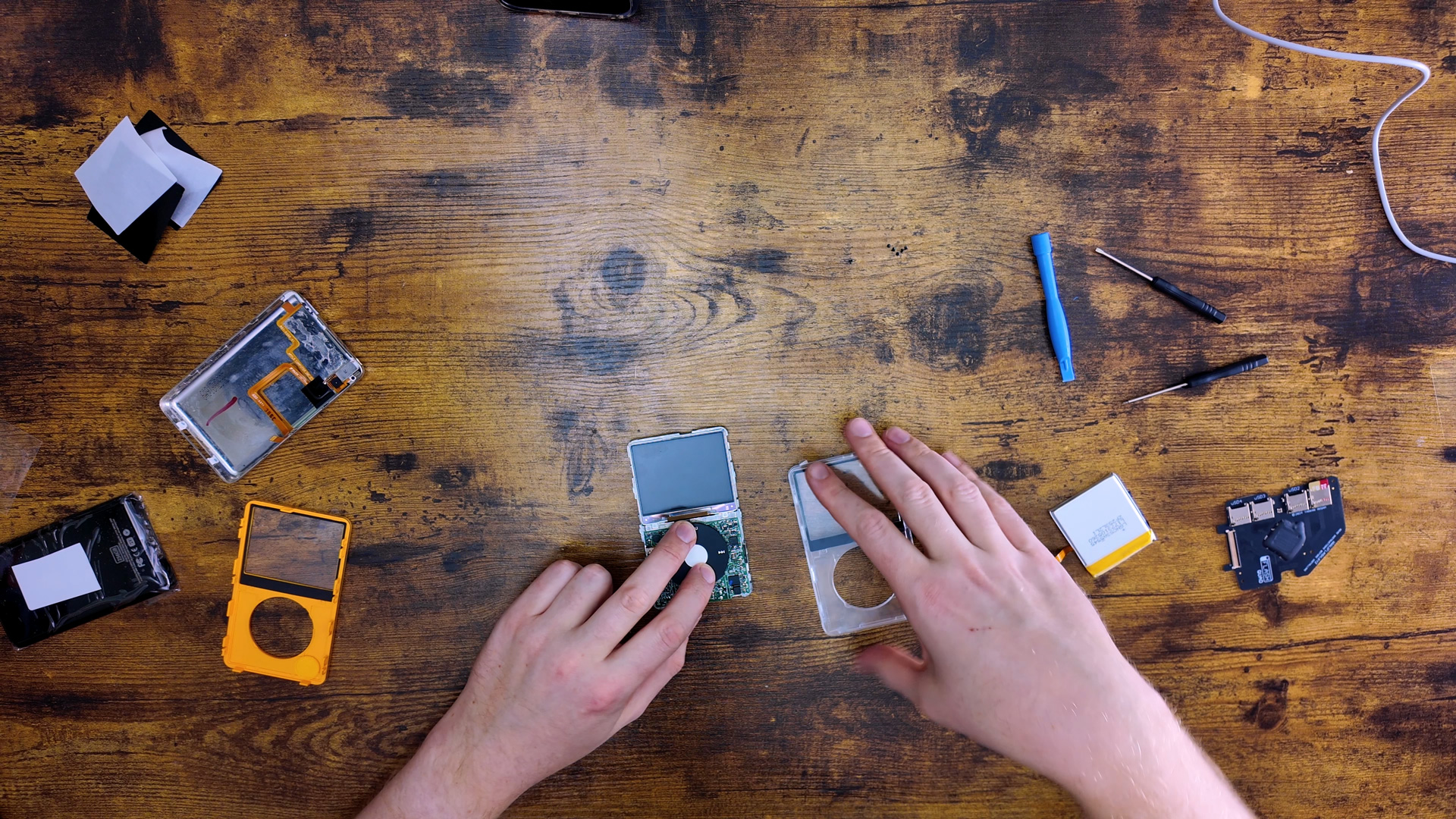
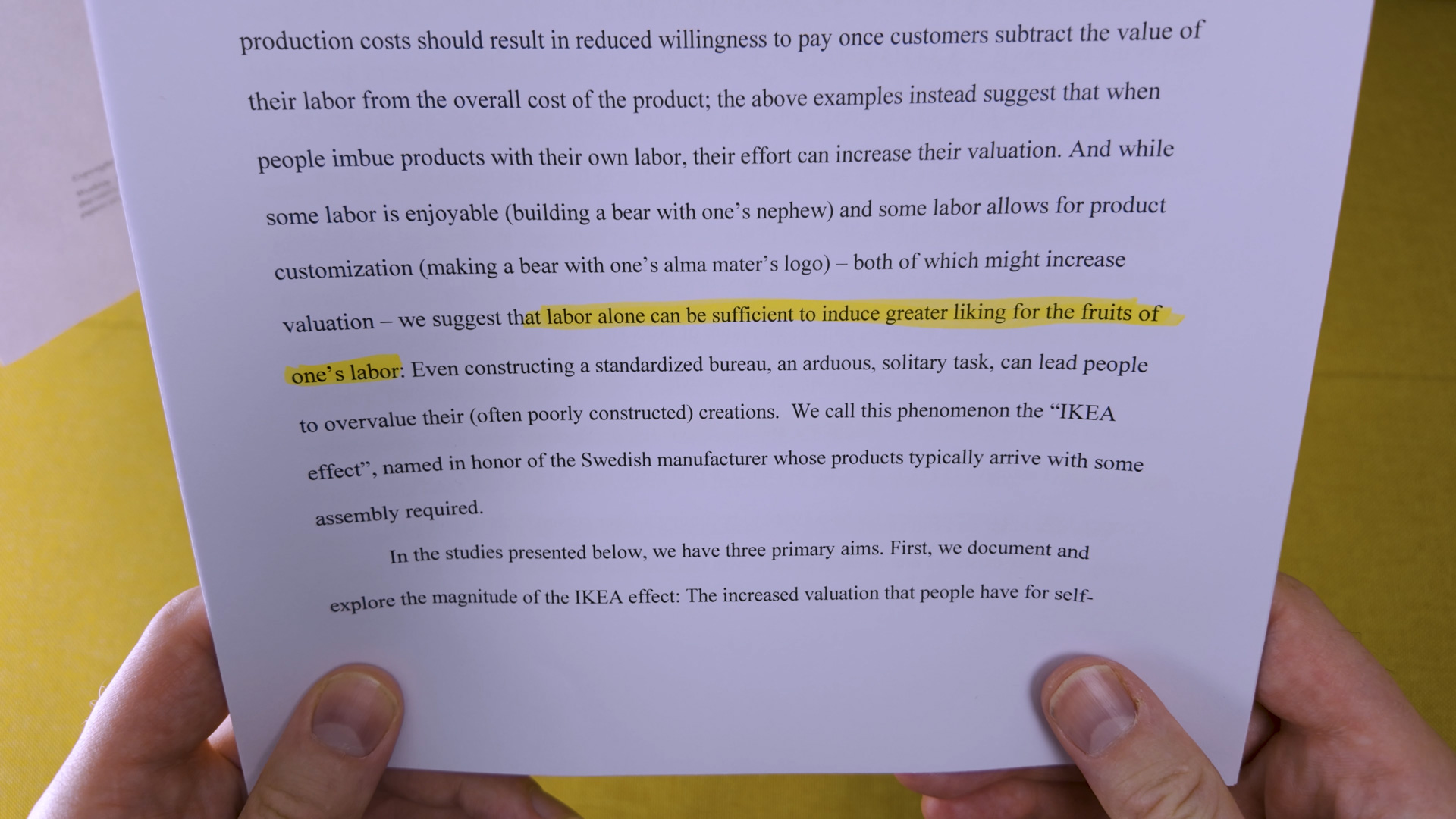
A 2011 study defined the “IKEA effect”, a cognitive bias we have towards products we’ve put effort into. They had people assemble IKEA products and then assess their monetary value, with a control group assessing the value without working on assembly. They did this with lego and origami too and the results were consistent; people assign a higher value to things they’ve worked on. As the study says “labor alone can be sufficient to induce greater liking for the fruits of one’s labor.” Maybe this isn’t surprising; we’re all familiar with the satisfaction of a job well done. but it turns out that it doesn’t matter if the job is well done. The study found that this effect was so strong that “consumers believe that their self-made products rival those of experts”
This is the third aspect of the iPod’s renewed appeal: the modding process itself. While you can buy a pre-modded iPod or, if you’re lucky, find one with the battery still working, using an iPod these days will usually involve a bit of tinkering; which as the IKEA effect shows, will raise the value mentally of the thing you’re working on. In other words, if you’ve spent time and effort creating an alternate way to listen to music, you’re way more likely to actually use it.
Despite me making it look very difficult in the video version of this post, modding iPods is very accessible; you don’t even need a soldering iron for the most basic mods. Unlike today’s Apple products, iPods like my 5th generation model were designed to be repairable, so for people who are pretty bad at hardware (like me), this is a great entry-level mod. You get a chance to breathe life into old technology while working with your hands, learning new skills and, maybe, gaining a deeper understanding of the everyday tech that surrounds us.
4. Nostalgia
It’s been over a month so — have I been using the ipod? The short answer is yes, though I have run into some problems. First, if I leave it alone for a day or so, it just won’t switch on, which you’d think means the battery is empty but no, as soon as you plug it in, it switches on fine and the battery is usually almost full. I don’t know why this happens, but it’s extremely annoying and it stops me from just casually throwing it in my bag and taking it with me. I assume it’s a battery issue but let me know if you have other ideas.
Secondly, while the iPod closed up neatly at the start, the friction of carrying it means it’s almost always half popped open, so if I do replace the battery, I’ll probably get the thicker back to go with it as well. You can also see that the replacement shell isn’t as high quality as the original; it’s already getting pretty scratched up.
Besides the battery thing, these are all nitpicks, because overall I’m much more likely to listen to music now, which was the whole point. For all its faults, it still makes me happy to hold my iPdo, which is rare for a piece of tech these days. And sure, a lot of that is probably nostalgia. That’s the elephant in the room, isn't it? Are these devices actually good or do we look back at them with rose-tinted glasses. The same question holds for old digital cameras, which are also having a moment right now. I grew up nostalgic for the film photography of my parents but I didn’t think the jpg-artefact littered images of my youth would come back into fashion, but they have, and why shouldn’t they?
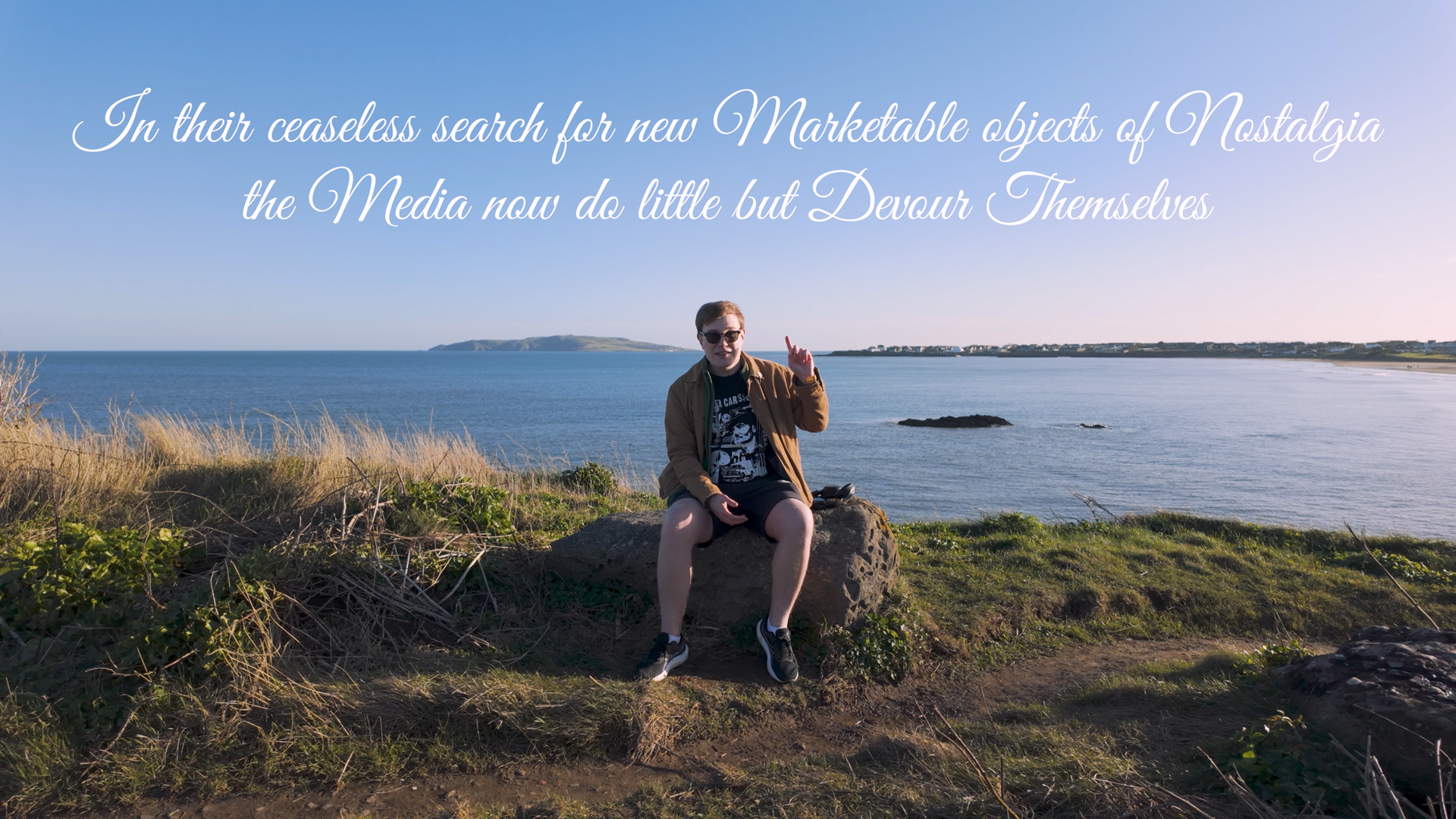
Based on media from these past couple of decades, nostalgia seems to have become more popular than ever before, and “in their ceaseless search for new marketable objects of nostalgia the media now do little but devour themselves.” Except that’s not a new thing, and I can prove it, because that right there is a quote from 1979!
In his book Yearning for Yesterday sociologist Fred Davis talks about “The Nostalgia Orgy of the Nineteen-Seventies” and he poses the question of “why is there so much nostalgia right now?” his answer is that nostalgia is a means by which we “assuage apprehension of the future by retrieving the worth of the past” and he believes we’re extra susceptible to trends of nostalgia when we face “untoward historic events and intrusive social change”
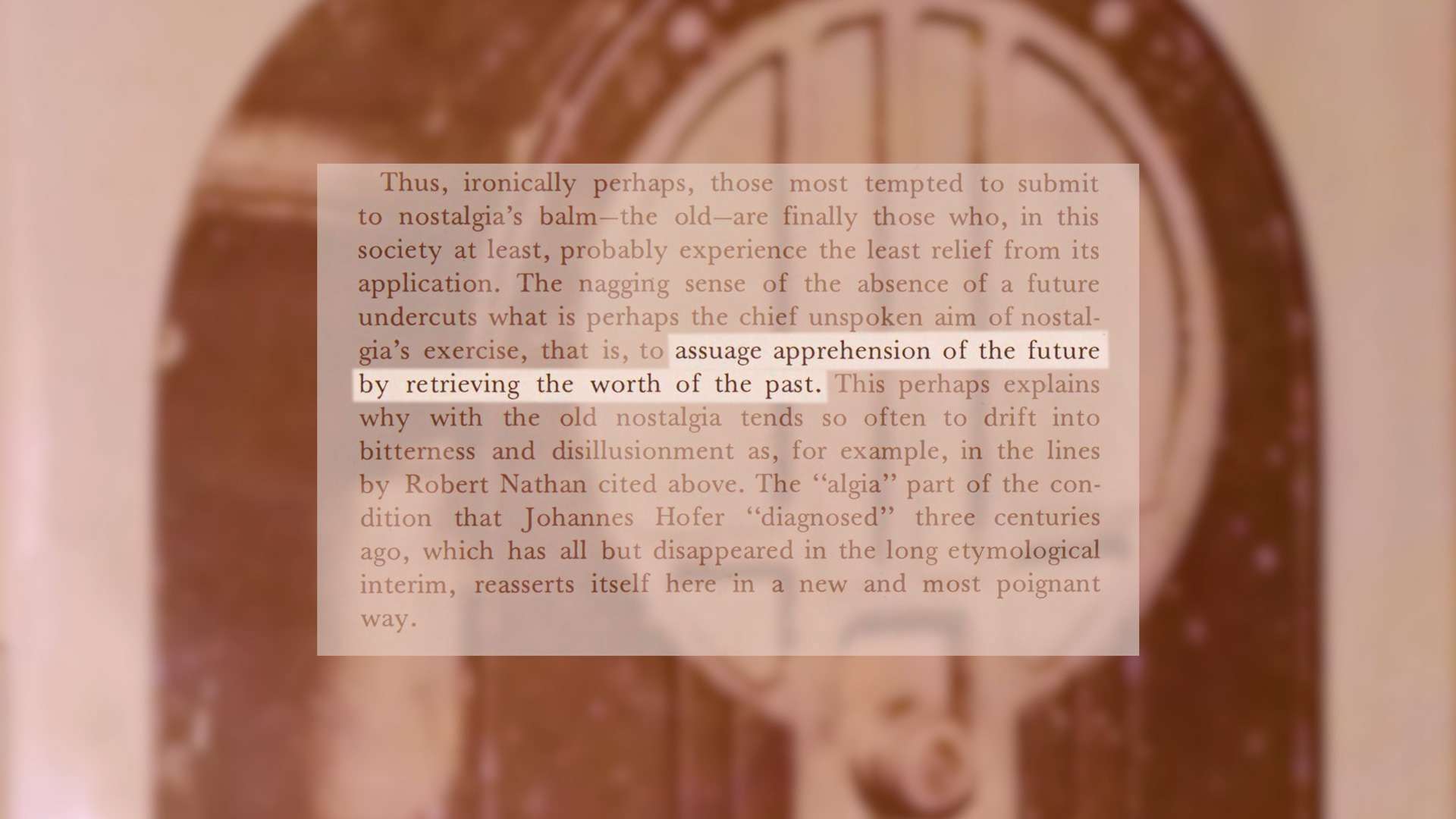
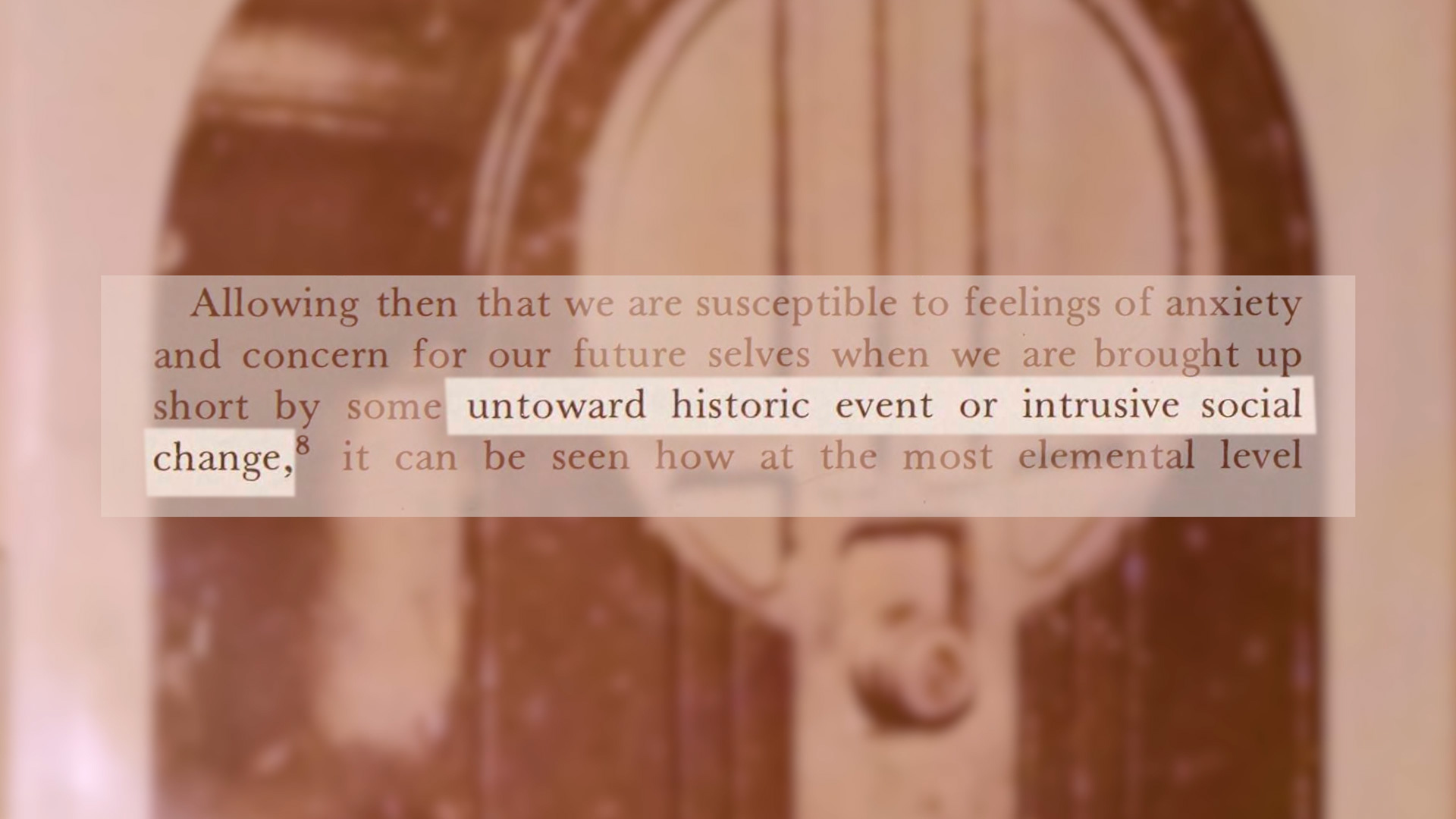
the popularity in the 1970s of Grease, Happy Days and other US media romanticising the ‘50s and ‘60s, can, by that logic, be understood as a reaction to the Vietnam war, the assassination of national leaders, riots, protests, and the collapse of faith in government that came from Watergate. It’s not difficult to apply the same logic today, with similar crisis fuelling our obsession with the ‘80s, ‘90s and, now, early 2000s. the most popular creator of iPod videos rose to prominence in the early days of the Covid-19 pandemic, and there’s no shortage of wars, terror attacks, and civil unrest to choose from. As for watergate parallels, the 2021 attempted coup in the US seems appropriate, except y’all re-elected Nixon this time, I guess? Add to that some wage stagnation, skyrocketing costs of living, impending climate disaster and… well, is it any wonder that we look towards the past rather than the future?
Fred Davis speaks of the US in the 70s as a time of “collective identity crisis, of a period of radical discontinuity in a people's sense of who and what they are,” and that’s when nostalgia becomes useful. No wonder we need it now!
Conclusion
The objects and tools we surround ourselves with are statement about the type of world we want to live in, and in the case of iPods, the four factors we’ve discussed come together beautifully:

- In the now they gives us a way to PAUSE, to escape toxic algorithms, and be more present.
- But they can also help us build a future where music is CURATED, recommended and collected by humans instead of leased back to us via streaming.
- Then there’s the MODDING aspect; cracking these things open and customising them, even just buying them second hand, it’s the opposite to how big corporations want us to interact with tech. We all want tech to be repairable but it benefits them to make it disposable, at the expense of the environment and our wallets.
- And finally there’s the nostalgia for the past. It might sound like a cheap reason to like something, but I think it’s good to be nostalgic for the world of tech and world-wide-web as it was when iPods first came out. That internet was an open frontier, an unincorporated space where we were all just excited to share. I’m still holding on to that, much like I’m holding on to the iPod; that’s why I’ve maintained this personal website for the last *looks at watch* 17 years.
I’m glad I went on this journey but it should go without saying that it doesn’t have to be an iPod. You can strive for all of these ideals in different ways and ultimately, it’s just an object, and an imperfect one at that. But the technologies we use do shape our lives, and I’m sorry to say that going with the default usually means being taken advantage of. Music streaming means musicians are taken advantage of, while the music itself is reduced to “content”.
Ultimately,I haven’t thought this much about music in a long time, and that’s probably the biggest benefit of this little project. I’m paying attention to what goes into my ears, which feels just as important as making conscious decisions about what I eat, read and believe.
So, whether it’s with an iPod or not, my advice is this:
Turn the content off, and put the music back on.
Jakob Burrows
March, 2025
